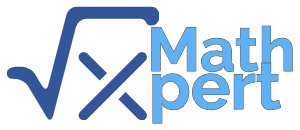Cambridge IGCSE
Mathematics
(0580)
This course develops students’ mathematical knowledge and serves as a strong basis for further study. As part of the course, students develop their skills, their understanding of mathematical concepts and methods, and solve problems and interpret results. The course follows extended content intended for students targeting grades D-A*.
Course structure
The course covers the extended topics:
Year 1
- Number, algebra, statistics and geometry
- Number, algebra and graphs
- Mensuration, probability and statistics
- Trigonometry, geometry and statistics
- Algebra and graphs
- Geometry and vectors
Year 2
- Number, algebra, graphs and geometry
- Number, probability, algebra, geometry and trigonometry
- Algebra and graphs
- Trigonometry, vectors, geometry, statistics, algebra and graphs
In each year there is also time for revision and trial examinations.
Activities and assessments
The course includes the following activities: worked problems and practice exercises on core topics, quizzes and marked assignments. Teachers will review and grade assignments during the course. There are also unit discussions to support students with each topic.
For the final examination students will take one of two routes consisting of two externally-assessed papers:
- Paper 2 (Extended) —1 hour 30 minutes, 35%, short-answer questions on the extended curriculum
- Paper 4 (Extended) —2 hours 30 minutes, 65%, structured questions on the extended curriculum
Advice from our teachers
In order to succeed in IGCSE Mathematics, we recommend students set aside five to six hours a week to study. It is important that students regularly keep up with the readings and the course activities in a timely manner.
Benefits to students
Taking IGCSE Mathematics will enable students to:
- develop their understanding of the mathematical concepts and methods
- solve problems and interpret findings
- become experienced in a wide range of technical and social tools
- develop skills like time management, communication and digital literacy
Cambridge International calculator guidance
IGCSE Mathematics students will require a scientific calculator when studying the course and for examinations. As stated below, Cambridge International allows for a wide range of calculators to be used in examinations.
Candidates can use programmable calculators [in examinations]. However, calculators with any of the following facilities are not allowed, unless stated otherwise in the syllabus:
- graphic display
- data banks
- dictionaries
- language translators
- retrieval or manipulation of text or formulae
- QWERTY keyboards
- built-in symbolic algebraic manipulations (output must be numeric not algebraic)
- symbolic differentiation or integration (output must be numeric not algebraic)
- capability of any remote communication
Cambridge IGCSE
Mathematics – Additional
(0606)
This course supports learners in building competency, confidence and fluency in their use of techniques and mathematical understanding. This course helps learners to develop a feel for quantity, patterns and relationships. Learners will develop their reasoning, problem-solving and analytical skills in a variety of contexts.
Course available from September 2020, for first exams in June 2022.
Course Structure
Year 1
- Functions
- Quadratic equations and inequalities
- Indices, surds and polynomials
- Simultaneous equations
- Logarithms and exponential functions
- Straight line graphs and vectors
- Permutations, combinations and series
Year 2
- Permutations, combinations and series (continued)
- Trigonometry
- Differentiation
- Integration
In each year there is also time for revision and trial examinations.
Activities and assessments
The course includes the following activities: readings on current topics, quizzes, self-assessments, marked worksheets and problem sets. Teachers will review and grade assignments during the course. There are also unit discussions to support students with each topic.
The final examinations for students on this course consist of 2 externally-assessed papers, covering:
- Paper 1 – 2 hours, 50%, Structured questions
- Paper 2 – 2 hours, 50%, Structured questions
Advice from our teachers
In order to succeed in IGCSE Mathematics – Additional, we recommend students set aside five to six hours a week to study. It is important that students regularly keep up with the readings and the course activities in a timely manner.
Benefits to students
Taking IGCSE Mathematics – Additional will enable students to:
- become experienced in a wide range of technical and social tools
- develop skills like time management, communication and digital literacy
- develop problem-solving skills that can be applied to issues in everyday life
- acquire a strong foundation in mathematics for further study in the subject or in mathematics-related subjects
